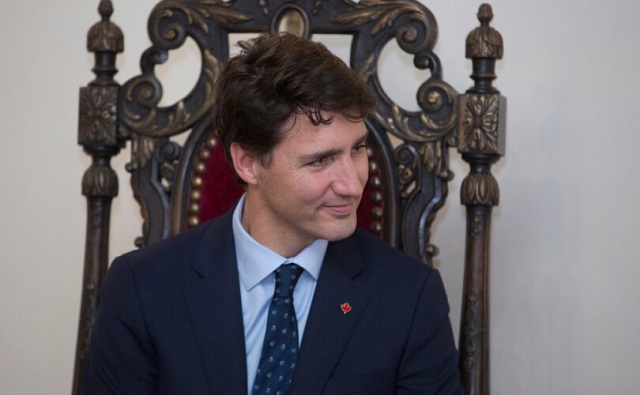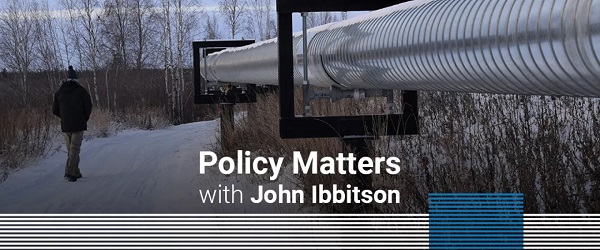RCMP
Red Deer RCMP arrest two individuals following ramming of police vehicle

News release from Red Deer RCMP
On April 26, 2024, at approximately 2:30 p.m., Red Deer RCMP received a report of a suspicious vehicle located in a parking lot on the north side of Red Deer. When members arrived, a traffic stop was attempted, but the suspect then rammed the officers police vehicle fifteen times. Following this, the two suspects attempted to flee on foot, but were quickly arrested.
Tia Kikoak (27), a resident of Red Deer, has been charged with fifteen offences including:
- Assault on police officer with a weapon
- Resist arrest
- Dangerous operation
- Possession of stolen property
- Unauthorized possession of firearm
- Possession of firearm knowing its possession is unauthorized
- Careless use of firearm
- Operation while impaired
- Fail to comply with release order x2
Jared Mcleod (30), a resident of Red Deer, has been charged with the following offences:
- Unauthorized possession of firearm
- Possession of firearm knowing its possession is unauthorized
- Careless use of firearm
- Possession of firearm contrary to prohibition order
- Possession for purpose of trafficking
- Resist arrest
- Possession of identity documents
- Common nuisance
Following a Judicial Interim Release Hearing, Kikoak and Mcleod were remanded into custody. They are scheduled to appear in Alberta Court of Justice in Red Deer on May 1st, 2024.
If you have information regarding this incident please contact Red Deer RCMP at 403-406-2200. If you wish to remain anonymous, you can contact Crime Stoppers at 1-800-222-8477 (TIPS), online at www.P3Tips.com or by using the “P3 Tips” app available through the Apple App or Google Play Store. To report crime online, or for access to RCMP news and information, download the Alberta RCMP app through Apple or Google Play.
RCMP
Over $100,000 cash seized by RCMP in Red Deer drug bust

News release from Alberta RCMP
Red Deer RCMP arrest individual for drug trafficking
On Jan. 22, 2025, Red Deer RCMP General Investigation Section (GIS) arrested one male as a result of a drug trafficking investigation.
Police executed search warrants on a residence and motor vehicle in the Red Deer area. As a result of the investigation, police seized over 16 ounces of cocaine that had been pre-packaged for sale and also pressed into a brick form, 140 Oxycodone tablets, items used in the trafficking of controlled substances and over $100,000 in Canadian currency.
Ermias Yohannes, a 36-year-old resident of Ontario, has been charged with the following offences:
- Possession of a Controlled Substance for the Purpose of Trafficking x2
- Possess Proceeds of Crime over $5000
Yohannes was brought before a Justice of the Peace and was remanded into custody. He is scheduled to appear in court on Jan. 30, 2025 at the Alberta Court of Justice in Red Deer.
“Red Deer RCMP remain committed to improving public safety and disrupting drug trafficking activities within our communities” said Cst. Andrew Devine, Red Deer RCMP GIS.
If you have information regarding this event or any other suspicious or illegal activity within the City of Red Deer, please contact Red Deer RCMP at 403-406-2200. If you wish to remain anonymous, you can contact Crime Stoppers at 1-800-222-8477 (TIPS), online at www.P3Tips.com or by using the “P3 Tips” app available through the Apple App or Google Play Store. To report crime online, or for access to RCMP news and information, download the Alberta RCMP app through Apple or Google Play.
Alberta
B.C. traveller arrested for drug exportation during Calgary layover
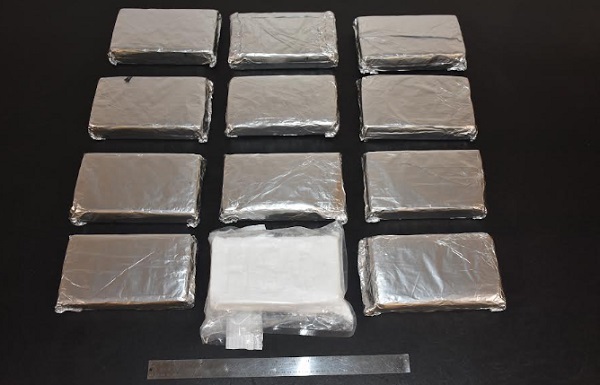
From the Alberta RCMP
B.C. traveller arrested for drug exportation during Calgary layover
Calgary – On Nov. 17, 2024, Canada Border Services Agency (CBSA) officers at the Calgary International Airport were conducting outbound exams when they intercepted luggage from a commercial flight destined for the United Kingdom. During the exam, officers found and seized 12 kg of pressed cocaine and a tracking device. The owner of the bag was subsequently arrested by CBSA prior to boarding a flight to Heathrow Airport.
The Integrated Border Enforcement Team in Alberta, a joint force operation between the RCMP Federal Policing Northwest Region, CBSA and Calgary Police Service, was notified and a criminal investigation was initiated into the traveller and the seized drugs.
Justin Harry Carl Beck, 29, a resident of Port Coquitlam, B.C., was arrested and charged with:
- Exportation of a controlled substance contrary to section 6(1) of the Controlled Drugs and Substances Act;
- Possession of a controlled substance for the purpose of trafficking contrary to section 5(2) of the Controlled Drugs and Substances Act.
Beck is scheduled to appear at the Alberta Court of Justice in Calgary on May 6, 2025.
“This seizure is a testament to the exemplary work and investigative expertise shown by CBSA Border Services Officers at Calgary International Airport. Through our key partnerships with the RCMP and the Calgary Police Service, the CBSA works to disrupt those attempting to smuggle illegal drugs across our borders and hold them accountable.”
- Janalee Bell-Boychuk, Regional Director General, Prairie Region, Canada Border Services Agency
“The RCMP Federal Policing Northwest Region’s top priority has always been, and will continue to be, public safety. This investigation serves as an important reminder that this extends beyond any border. By working together, we prevented this individual from importing an illicit substance into a foreign country where it had the potential to cause significant harm to others, all for the sake of turning a profit.”
- Supt. Sean Boser, Officer in Charge of Federal Serious Organized Crime and Border Integrity – Alberta, RCMP Federal Policing Northwest Region
“This investigation underscores the importance of collaboration in drug trafficking investigations. Our partnerships with law enforcement agencies across the country, and internationally, are vital to addressing crimes that cross multiple borders. By intercepting these drugs before they could reach their destination, we have ensured a safer community, both locally and abroad.”
- Supt. Jeff Bell, Criminal Operations & Intelligence Division, Calgary Police Service
IBET’s mandate is to enhance border integrity and security along the shared border, between designated ports of entry, by identifying, investigating and interdicting persons, organizations and goods that are involved in criminal activities.
-

 Business2 days ago
Business2 days agoDoug Ford needs to ditch the net-zero pipedreams
-
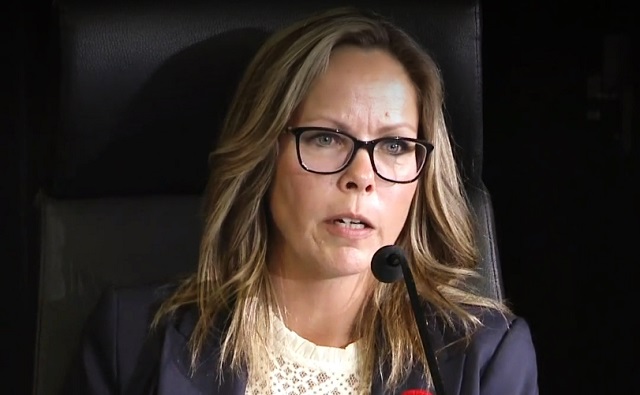
 COVID-192 days ago
COVID-192 days agoVerdict for Freedom Convoy leaders to be read April 3
-
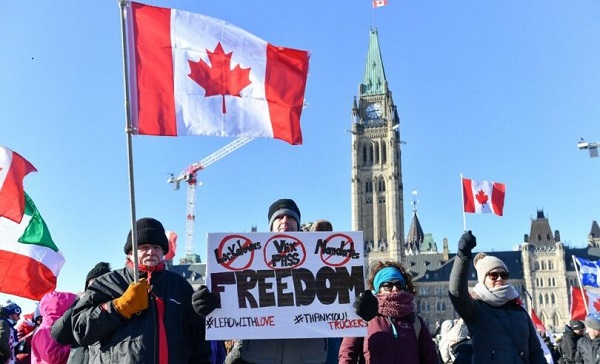
 COVID-192 days ago
COVID-192 days agoCanadian court approves $290 million class action lawsuit against Freedom Convoy
-
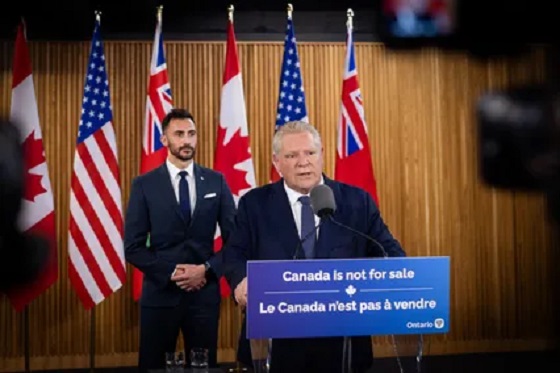
 Business2 days ago
Business2 days agoOntario suspends electricity surcharge after Trump doubles tariffs
-
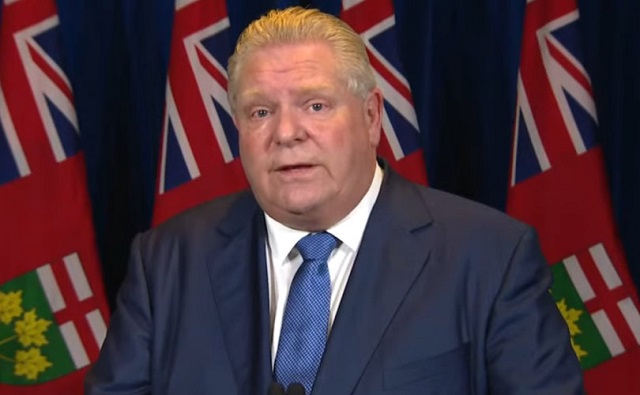
 Business21 hours ago
Business21 hours agoOntario Premier Doug Ford Apologizes To Americans After Threatening Energy Price Hike For Millions
-

 Business2 days ago
Business2 days ago38 state AGs, DoJ announce plan to end Google’s search monopoly
-

 Daily Caller22 hours ago
Daily Caller22 hours agoReality Finally Returns To Energy Industry
-
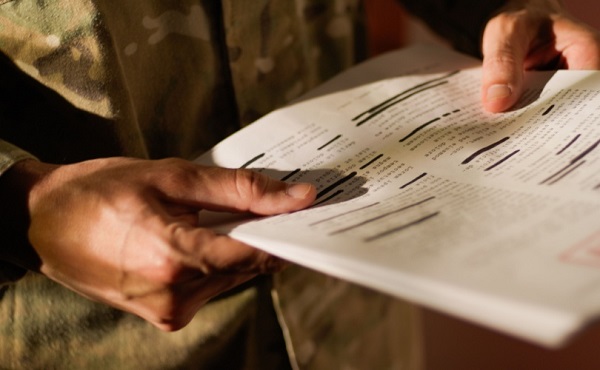
 espionage13 hours ago
espionage13 hours agoWhy has President Trump not released the JFK, Jeffrey Epstein files?

